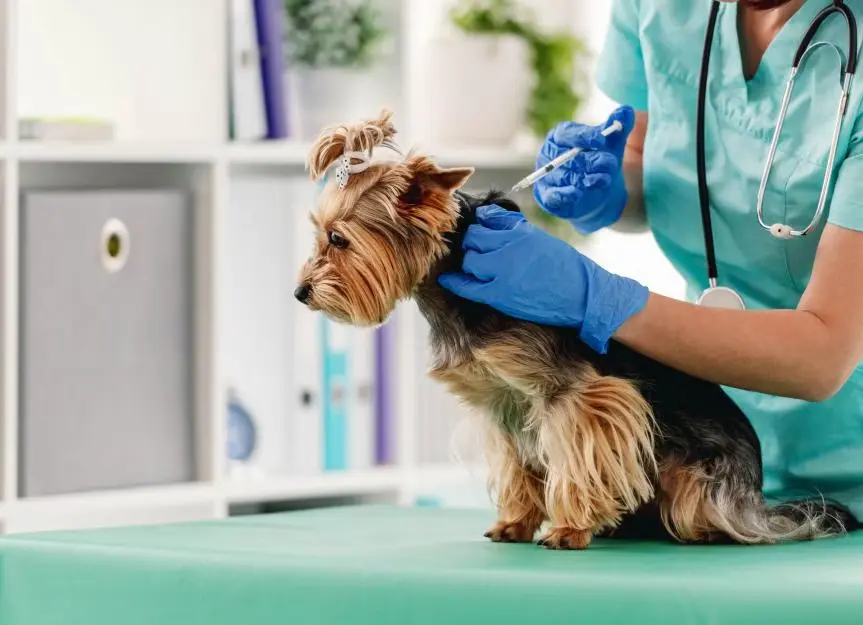Understanding vaccination schedules for your pets can feel overwhelming. But it doesn’t have to be. At Richmond veterinary hospital, veterinarians ensure your pets receive the right vaccines at the right time. Vaccinations play a key role in keeping your pets healthy. They protect against diseases that could otherwise be deadly. Puppies and kittens usually need more frequent shots early on. Older pets still require boosters to stay protected. Your vet will help tailor a plan based on your pet’s age, lifestyle, and health. This personalized plan means you don’t have to worry about missing crucial shots. You’ll stay ahead of potential health threats. By following the schedule, you’re actively giving your pets a healthier life. You’re also protecting other animals in your community. Remember, staying on top of your pet’s vaccinations is an act of love and responsibility. Trust your vet. They care about your pet’s well-being just as much as you do.
Why Vaccinations Matter
Vaccines are not just shots. They are shields for your pets. Preventive care is your best defense against severe diseases like rabies, distemper, and parvovirus. These diseases can be fatal. Vaccinations reduce the risk of spreading diseases to other animals or humans. They are essential for safe and healthy community living. By vaccinating your pet, you are investing in their future health and happiness. You also ease the worry of potential disease outbreaks.
Understanding the Schedule
Following a vaccination schedule is straightforward when you break it down. Dogs and cats have different needs. Puppies need their first round of vaccines at six to eight weeks. These include shots for distemper and parvovirus. They need booster shots every three to four weeks until they are sixteen weeks old. Kittens have similar requirements. They need vaccines starting around six weeks, with boosters every three to four weeks until they are sixteen weeks old.
Pet Vaccination Schedule Table
| Pet Age | Vaccine | Frequency |
| Puppies (6-8 weeks) | Distemper, Parvovirus | Every 3-4 weeks until 16 weeks |
| Kittens (6-8 weeks) | Rabies, Feline Distemper | Every 3-4 weeks until 16 weeks |
| Adult Dogs (1+ year) | Rabies, Bordetella | Annually |
| Adult Cats (1+ year) | Rabies, Feline Distemper | Annually |
Factors Influencing Vaccination Choices
Your vet may adjust the standard schedule based on several factors. These include your pet’s health, lifestyle, and environment. Indoor pets might have different needs compared to those with outdoor access. Your vet will consider any health concerns specific to your pet. They will recommend vaccines that are most beneficial. Communicate openly with your vet about your pet’s habits and environment for the best care plan.
Common Vaccines Explained
- Rabies: Crucial for all pets. It is required by law in many places.
- Distemper: Protects against a contagious virus causing fever and respiratory issues.
- Parvovirus: A severe virus that affects the digestive system of dogs and can be fatal.
- Bordetella: Known as kennel cough, required for dogs in boarding situations.
The Importance of Boosters
Initial vaccines provide essential protection. However, boosters are necessary to maintain that protection. They help ensure long-term immunity. For instance, rabies boosters are mandatory every one to three years. Regular check-ups help keep track of necessary boosters. Your vet can adjust the timing based on your pet’s needs.
Partnering with Your Vet
Your veterinarian is your partner in maintaining your pet’s health. They have the knowledge and experience to recommend the best vaccination plan. Communication is key. Discuss any concerns or questions you have. Your vet’s goal is to ensure your pet stays healthy and happy throughout their life.
Further Resources
For more details on vaccinations, you can visit the Centers for Disease Control and Prevention website. Another valuable source is the American Veterinary Medical Association, which offers extensive information on pet care and vaccinations.
In summary, understanding and following a vaccination schedule is crucial for your pet’s health. With the right guidance from your vet, you can feel confident in the care you provide. Stay informed, ask questions, and prioritize regular visits to your veterinarian.
Also Read-Jody Glidden Net Worth: Exploring His Tech Success and Career Ventures

